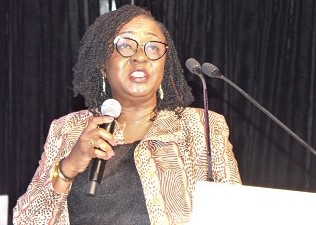
Women advocacy groups yesterday called on the government to expedite action on the passage of the Affirmative Action Bill (AAB) into law by the end of the year.
The call was made at a press conference and media advocacy launch, organised by the Friedrich Ebert Stiftung (FES) in collaboration with International Federation of Women Lawyers (FIDA), in Accra.
It brought together women organisations from various political parties, as well as market women and other stakeholders.
Mrs Joana Adzoa Opare, a Gender Consultant, said the bill, when passed, would promote a progressive increase in active participation of women in public life from a minimum of 30 per cent to a parity of 50 per cent by 2030.
Parliament reconvenes next month to commence the third meeting of the third session of the 7th Parliament of the 4th Republic.
According to her, the law would ensure the achievement of gender equality in political, social, economic and educational spheres in the society.
Mrs Opare stated that, the bill was based on Article 17(4) of the 1992 constitution, which allowed parliament to enact legislation relating to gender equality to address social, economic or educational imbalance in the society.
Addressing some challenges confronting women in decision making, she indicated that, women had lower levels of education, professional experience, income and available time compared to men.
"Women have limited access to leadership, managerial skills, training, disproportional expectation and lacked political capacities because public sector activities are usually seen as the male domain,"Mrs Opare added.
Highlighting some benefits of the bill, she said, the bill would promote democracy and good governance, ensure equal participation in decision making and diversity in governance.
"Women participation can improve delivery of social services and the relationship between government and local communities as well as bring on board alternative paradigms such as a focus on health, child care, water resources, especially at the local governance level," Mrs Opare said.
She noted that, women's equal participation in decision making was not only a demand for simple justice or democracy, but a necessary condition for women's interests to be taken into account.
Mrs Irene Aborchie-Nyahe, Executive Member of FIDA, Ghana, said the continuous refusal of the state to pass the bill was discrimination against women and a violation of Article 17(1), (2), (3) and (4a).
In addition, she indicated that, enough evidence had been gathered against the state by women which showed women had been discriminated against, which was a violation of the constitution.
"Affirmative Action is for the benefit of the country, not for the benefit of women. It will enable the nation to harness it resources," she stated.
Read Full Story





















Facebook
Twitter
Pinterest
Instagram
Google+
YouTube
LinkedIn
RSS